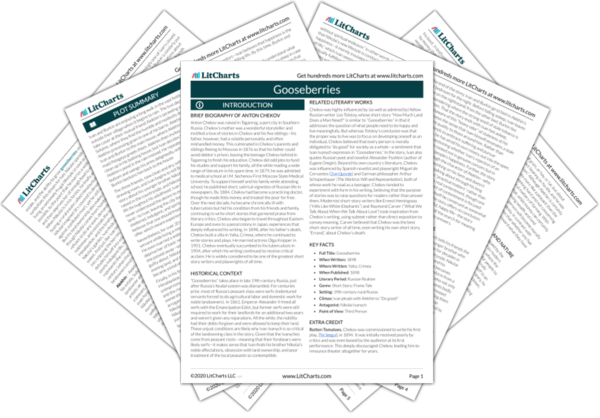Chekov was highly influenced by (as well as admired by) fellow Russian writer Leo Tolstoy, whose short story “How Much Land Does a Man Need?” is similar to “Gooseberries” in that it addresses the question of what people need to be happy and live meaningfully. But whereas Tolstoy’s conclusion was that the proper way to live was to focus on developing oneself as an individual, Chekov believed that every person is morally obligated to “do good” for society as a whole—a sentiment that Ivan Ivanych expresses in “Gooseberries.” In the story, Ivan also quotes Russian poet and novelist Alexander Pushkin (author of
Eugene Onegin). Beyond his own country’s literature, Chekov was influenced by Spanish novelist and playwright Miguel de Cervantes (
Don Quixote) and German philosopher Arthur Schopenhauer (
The World as Will and Representation), both of whose work he read as a teenager. Chekov tended to experiment with form in his writing, believing that the purpose of stories was to raise questions for readers rather than answer them. Modernist short-story writers like Ernest Hemingway (“Hills Like White Elephants”) and Raymond Carver (“What We Talk About When We Talk About Love”) took inspiration from Chekov’s writing, using subtext rather than direct exposition to convey meaning. Carver believed that Chekov was the best short-story writer of all time, even writing his own short story, “Errand,” about Chekov’s death.
